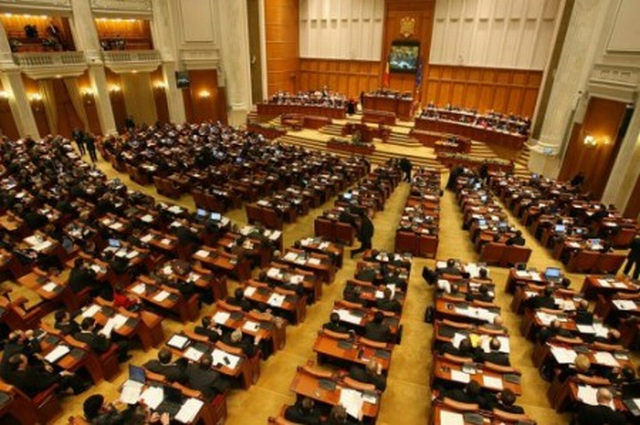Parliament rejects amnesty bill
The Chamber of Deputies of Romania turns down a controversial bill on amnesty and pardons.

Florentin Căpitănescu, 19.11.2014, 14:17
The Parliament, a fundamental institution in democratic countries, has had rather low approval rates in post-communist Romania, and Romanian MPs themselves have contributed to this. They have often failed to safeguard political and moral decency in a country where corruption runs unchecked both in central and local administration structures. The mere existence of parliamentary immunity and the refusal to lift this immunity so that MPs may be subject to criminal investigation have strengthened the idea that Parliament has openly interfered with the judiciary.
To make matters even worse, Romanian politicians put together a piece of legislation to help their colleagues sentenced for corruption. As such, the Judicial Committee of the Chamber of Deputies secretly adopted, about a year ago, a controversial bill on amnesty and pardons, which has not come to public attention until recently. It is only now, after being the subject of election debates, that the Chamber has finally rejected the bill, in a rare display of solidarity between Power and Opposition.
The bill stipulated the amnesty of the crimes, including corruption-related offences, for which the Criminal Code or other special laws lay down prison sentences of up to seven years, and the full pardoning of those sentenced to less than six years in prison. The Liberal MP George Scutaru, representing the right-of-centre opposition, accused the parliamentary majority, especially the Social Democratic Party, of having deliberately kept the bill pending. George Scutaru:
“It took losing the presidential elections to discuss this bill in the Chamber of Deputies and dismiss it. Hopefully, when you receive such signals from the opposition and civil society in the future, you will also take them into account.”
On the other hand, the Social Democratic MP Marian Neacsu argues that the Committee needed the time to draw up a clarifying report on the bill. Marian Neacsu:
“When trying to promote a bill that has attracted more interest from the public than it actually deserved, it is important to have thorough information and research in order to be able to make the best decision. This shouldn’t have been used as a weapon in the election campaign by either party.”
Also on Tuesday, as further proof of their anti-corruption drive, the Chamber of Deputies accepted the prosecutors’ request to lift the immunity of three MPs accused of corruption.






























